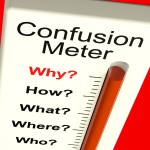Main Takeaways:
- Workers’ compensation is for people who get hurt at work, and short-term disability is for injuries or illness that are deemed non-work related (car accidents, sickness, or diseases).
- If you file for workers’ compensation and get denied, you can then file for short-term disability. It is beneficial to consult with a Richmond workers’ compensation attorney before filing that claim.
- If your employer tells you to file for short-term disability instead of workers’ compensation after you’re hurt on the job, your employer either may not know the difference or save the company money.
- If you get on short-term disability and you should have been receiving workers’ compensation benefits, you will have to pay back the short-term disability benefits later on.
Common Questions About Workers’ Compensation vs. Short-Term Disability
- “What is the difference?”
- “Which one should I apply for?”
- “Why is my employer telling me to file for short-term disability if I got hurt at work?”
- “I have been denied for workers’ compensation benefits, now can I get short term disability?”
- “Does it affect my workers’ compensation case if I get on short-term disability?”

The above are the most common questions I hear when injured workers are caught between short-term disability benefits (STD) and workers’ compensation benefits. Read on for some clarity on the two different types of insurance and how they affect one another.
Difference Between Workers Compensation and Short Term Disability
 The big difference is that workers’ compensation is for people who get hurt at work and short-term disability (STD) is for injuries or illness that are deemed non-work related (car accidents, sickness, or diseases). Likewise, short-term disability policies typically do not cover work-related injuries. If you have a STD policy, you are usually paying for this. This is money taken out of your check, just in case something unforeseen should happen to you.
The big difference is that workers’ compensation is for people who get hurt at work and short-term disability (STD) is for injuries or illness that are deemed non-work related (car accidents, sickness, or diseases). Likewise, short-term disability policies typically do not cover work-related injuries. If you have a STD policy, you are usually paying for this. This is money taken out of your check, just in case something unforeseen should happen to you.
Your employer pays for the workers’ compensation insurance, so that way if an injury does occur on the job, the insurance is there to handle the situation (kind of like you and I pay for car insurance – just in case!). Workers’ compensation and STD policies typically have very different time limits associated with them as well.
 Applying for Short Term Disability vs. Workers’ Compensation
Applying for Short Term Disability vs. Workers’ Compensation
This can be confusing. Generally speaking, if you got hurt at work, you should be applying for workers’ compensation benefits. However, if workers’ compensation benefits are denied (if it is a repetitive injury, for example), you could then file for short term disability benefits (depending on the terms of your policy).The difficult situation is when the two insurance companies deny the claim and point the finger at the other and you are stuck in the middle not getting any benefits. To make sure things are done correctly, contact a workers’ compensation lawyer in Richmond today for help.
Why is my employer telling me to file for short-term disability if I got hurt at work?
The answer may be one of two things: 1) Your employer may not be aware of the difference between the two types of benefits OR 2) Your employer could be trying to pull the wool over your eyes – by having you make a claim under your personal STD policy (remember YOU pay for this and it is usually much less money and no medical benefits), instead of filing a claim for workers’ compensation benefits against the company’s insurance policy (the policy the employer pays for) it saves the company money (filing a claim will increase their premiums).
I have been denied for workers’ compensation benefits, now can I get short-term disability benefits?
In most cases, yes; however, short-term disability policies vary greatly so you may have to pull out your policy and read over the terms and conditions to be sure.
Does it affect my workers’ compensation case if I get on short-term disability?
The short answer is, yes. If you get on STD and you should have been receiving workers’ compensation benefits, you will have to pay back the STD later on.
For example: Your workers’ compensation claim is initially denied and you start collecting STD benefits. Then you hire a Richmond workers’ compensation attorney to go to a hearing and fight for your workers’ compensation benefits. The attorney wins your benefits and you are paid workers’ compensation wages for the time you were out of work. Now you have been paid twice, once from STD and once from workers’ compensation. Now you would have to pay back the money you collected while getting STD to the STD company because workers’ compensation has now paid you and you cannot collect both. No double-dipping!
Also, in most cases to get on STD, you have to say that the injury that is preventing you from working is not work-related. If you are still seeking workers’ compensation benefits, any statements of this nature could be VERY HARMFUL to your case!
Make sure you understand the difference between the two types of insurance, how they affect each other and how they could affect you. For help today you can contact us here or call us at (804) 755-7755 for a free confidential consultation.
Myths vs Facts about VA Workers Compensation
Myths
Facts
Myth
I didn’t report my injury the day it happened, so I can’t get workers compensation benefits.
Fact
In the State of Virginia you can be covered by workers compensatin benefits so long as the injury is reported to the employer within 30 days of the accident.
Myth
The injury was partly my fault, so I can’t get worker compensatin benefits.
Fact
Workers compensation is a no fault process & it doesn’t matter who is at fault for the accident.
Myth
I was injured at work so I am going to sue my employer!
Fact
In Virginia, you are entitled to workers compensation benefits for a work accident injury but you cannot sue your employer because you get injured at work.
Myth
The insurance company is paying my medical bills, so I’m covered.
Fact
The ONLY way to ensure you are protected is to file a Claim Form with the Virginia Workers Compensation Commision and get an award for lifetime medical benefits.
Myth
I was at work while I was injured, so I’m covered.
Fact
Your injury must be related to work in order to be covered. If you fall from tripping over your own feet or have a heart attack, simply being at work does not mean you are covered. Virginia law requires that there is a link between your injury and work.
Myth
The insurance adjuster is looking our for me.
Fact
The adjuster is an agent of the insurance company and their job is to save the insurance company money. They do this by not paying claims. Be careful who you put your trust in.
Myth
I’m a good worker, so my emplyer will take care of me.
Fact
The insurance company determines your benefits. In order to get those benefits you have to meet the laws set forth by VA State Legislature. Being a great (or horrible) employee is NOT a factor determining benefits.
About the Author: Michele Lewane
The Injured Workers Law Firm is a Richmond, Virginia based firm solely focused on serving clients with workers' compensation claims in Virginia. If you have questions about your benefits or if you would like more information on the Virginia workers’ compensation system, order our book, “The Ultimate Guide to Workers’ Compensation in Virginia” , or call our office today (804) 755-7755.


